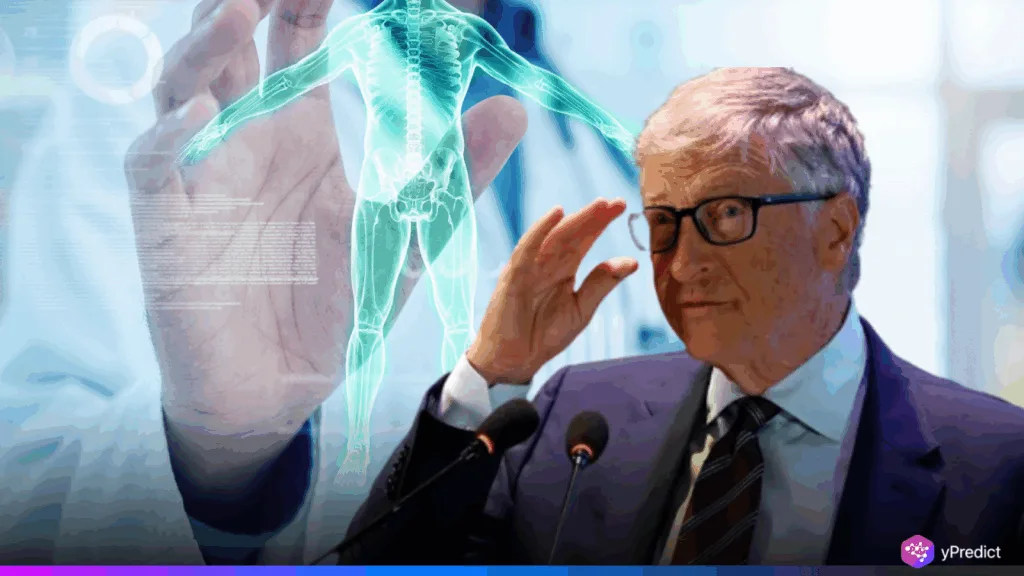
Bill Gates has expressed unlikely backing in artificial intelligence as a biology and medical game changer. He talked about its potential in terms of modeling complex states of disease. Making drug discovery more rapid and drug treatment more effective. There may be new hope in fighting such diseases as cancer and Alzheimer’s. That has long been fought in conventional ways with the help of AI, which is predictive in character. As a milestone to speed up drug designing, Gates cited the ability to predict the shape of proteins.
AI in Medical Research
Gates feels that AI is going to transform disease knowledge and delivery. A good illustration has been the prediction of the structure of proteins using AI based on the known sequence of amino acids in the protein—a problem that had been deemed impossible to solve. The award (which has achieved Nobel standard recognition) offers scientists molecular blueprints that are accurate, and thus, they can easily formulate drugs that can have biological targets. Gates refers to this as a mind-blowing block to science, as it saves years in research time.
Historically, researchers discovered the largest breakthroughs in medicine by chance, and scientists only realized the underlying science afterwards, such as with obesity drugs like Ozempic. Gates envisions AI helping society in getting rid of such dependence on luck. AI has the potential to give researchers a specific direction by modeling the progression of the disease to the formation of a beneficial solution. This is in the form of reduced failed trials, minimized expenditure, and rapidity of outcomes for the patients. Such advances have the potential to be life-changing with aging populations and growing demands on healthcare.
Industry and Scientific Efforts
The movement that Gates talks of has already started in industry and in academia. A good example of this move is Exscientia, a biotech based in Oxford, which Gates backs. AI also picks out promising drug targets, and the company has already partnered with major companies Bristol-Myers Squibb and Sanofi and secured funding from the Bill & Melinda Gates Foundation. Such partnerships aim to speed up the path between an idea and clinical trials and transform the potential of AI into viable treatments.
Other players are also research institutions. The European Molecular Biology Laboratory, via projects such as the Open Target consortium, is using AI to help determine disease processes, as well as fine-tune possible treatments. Such projects assemble genetic, clinical, and biochemical data, which become an effective instrument of precision medicine. This reach toward scientific cooperation and commercial ambition is something that Gates feels is necessary to improve.
The associated growing ecosystem is indicative of a paradigm shift: AI is no longer a hypothetical innovation but a working reality in the context of drug discovery. Breakthroughs are probably going to get faster as algorithms get smarter and data grows in availability. This focus on strategic investment by Gates signifies that there should be a continued investment and collaboration on the international stage in order to maximize the potential of AI in the medical and pharmaceutical industries.
Outlook
Gates also sees a future of the healthcare industry in which AI-based research leads to a significant decrease in time, costs, and uncertainty in the development of new treatment options. The shift to strategic, evidence-based breakthroughs may shake up the way the field of medicine addresses its most difficult problems. Biotech companies and universities are making investments that are creating the framework, although success requires cooperation, adjustment to regulation, and the maintenance of a pipeline of innovation. Personalized medicine will be at the same standard as a luxury because of the precision that AI can bring to the table to positively impact the outcomes of millions of people.






